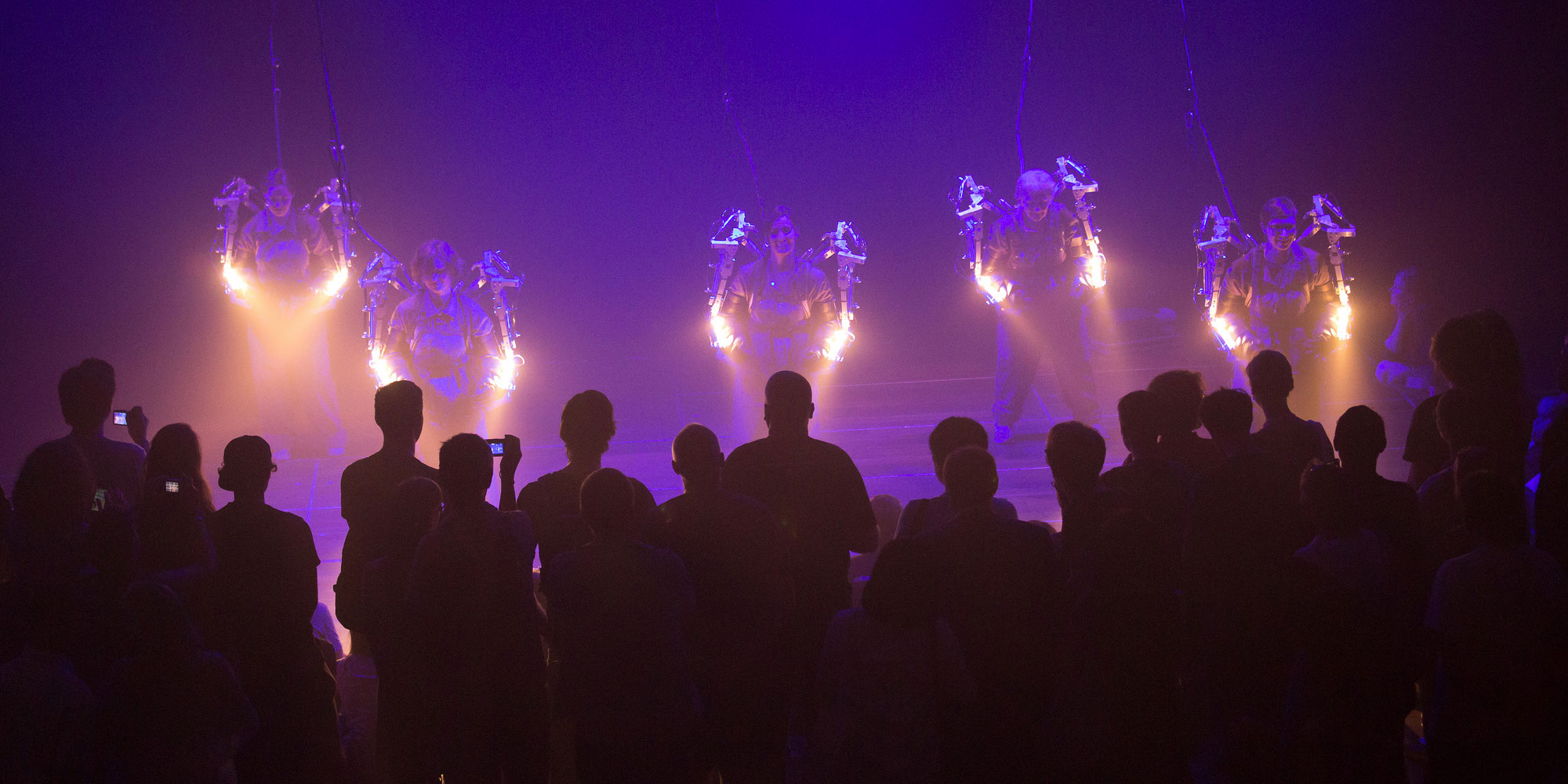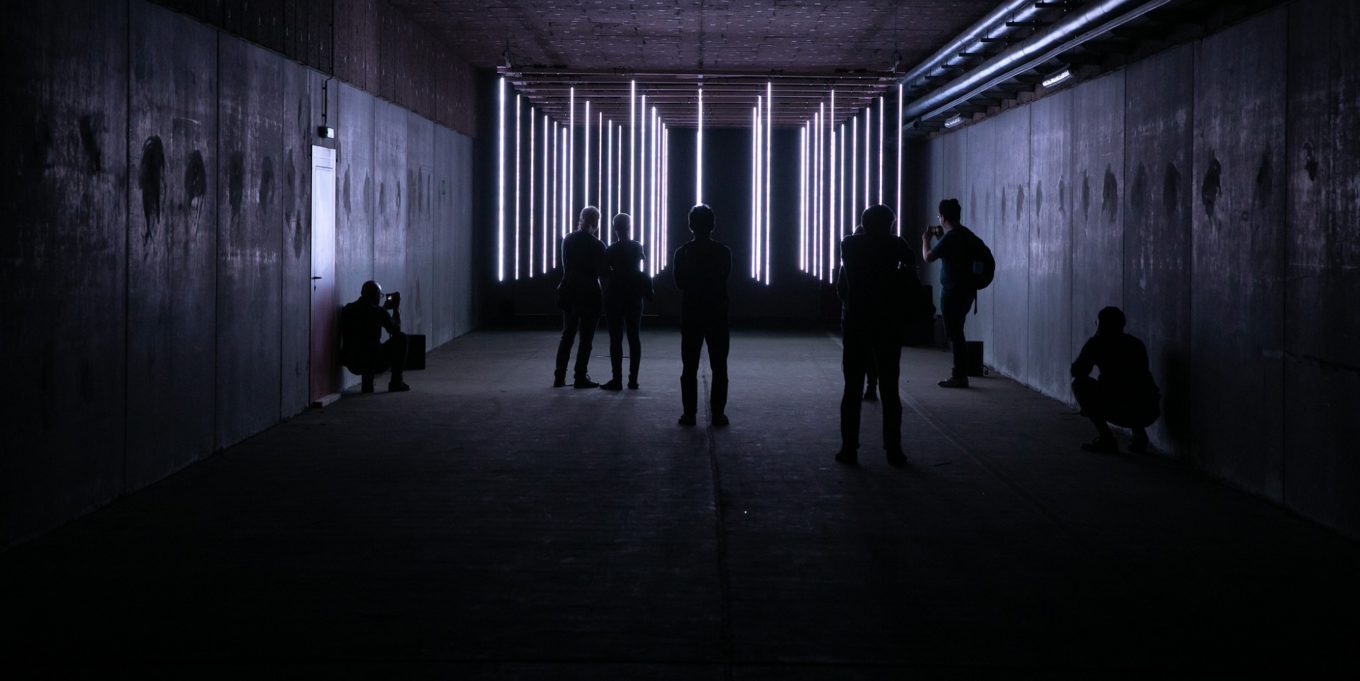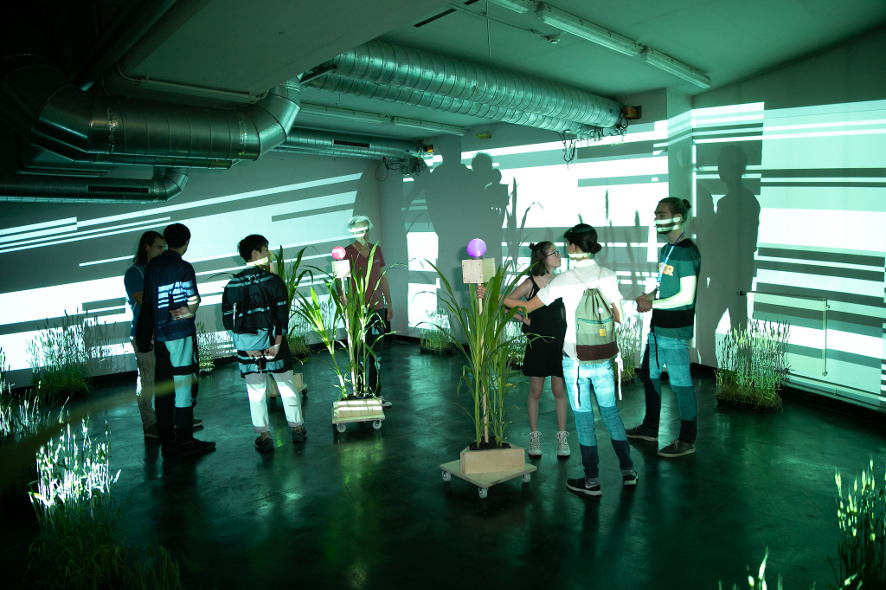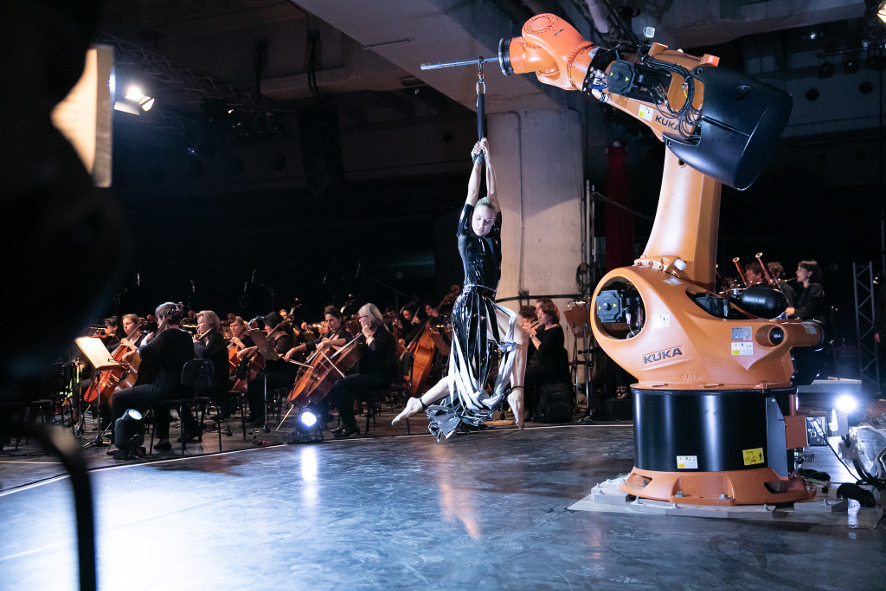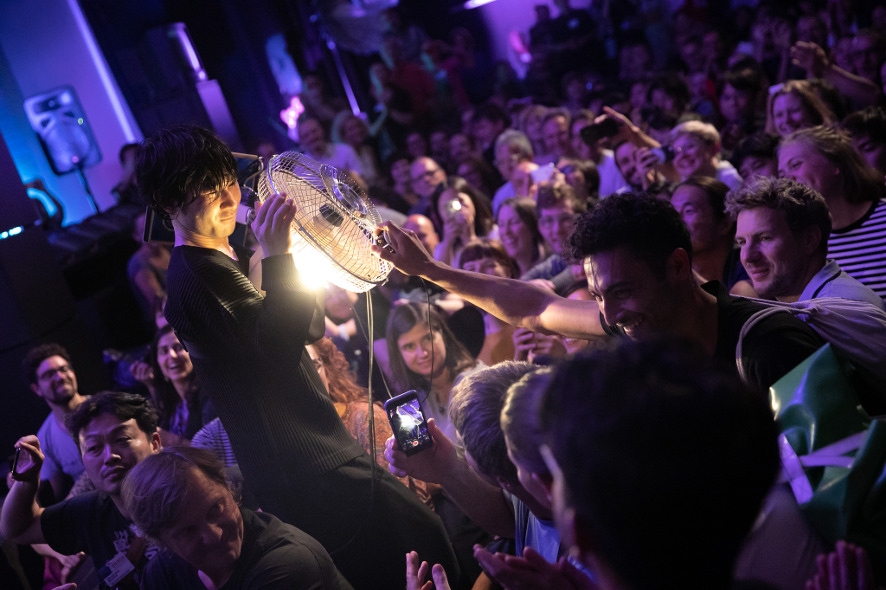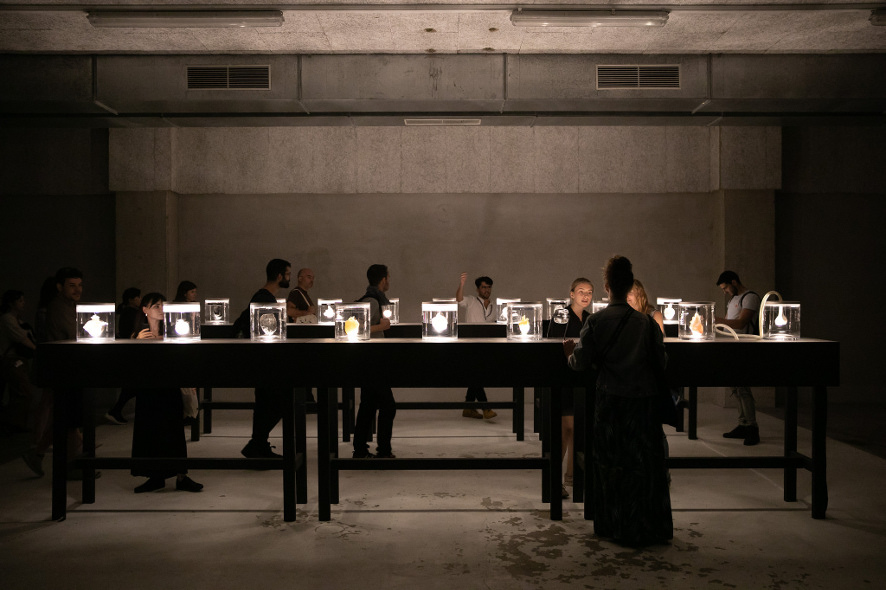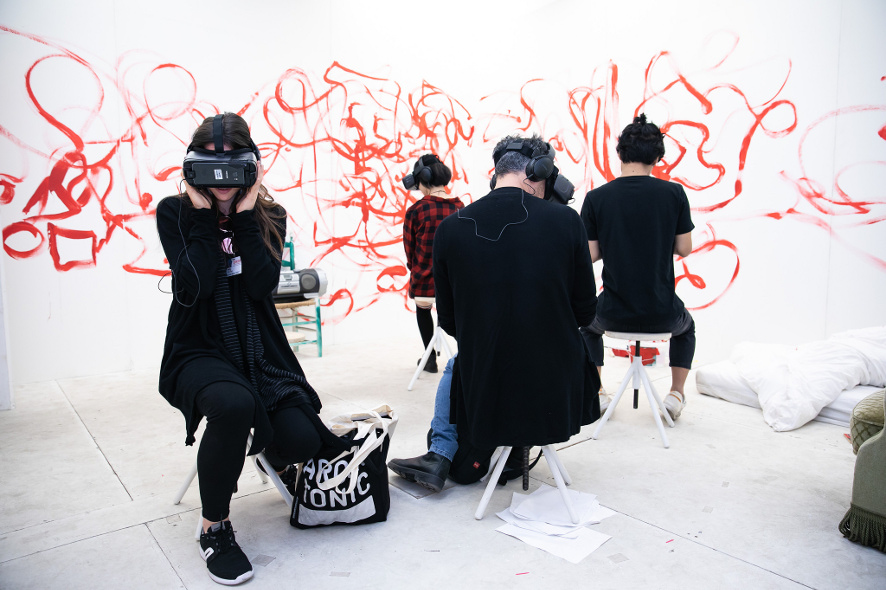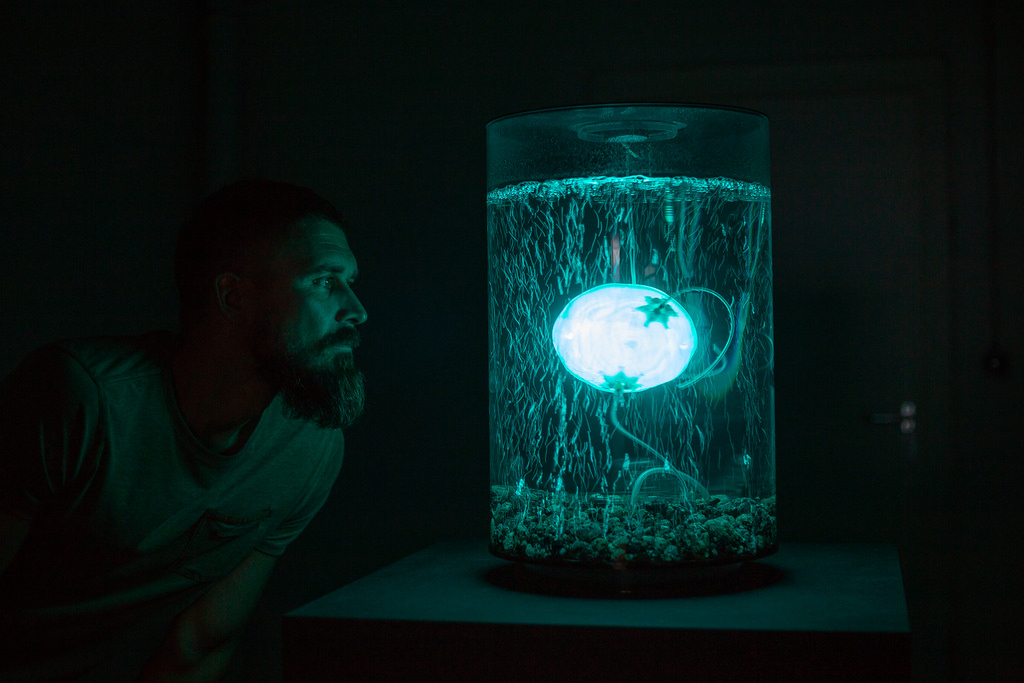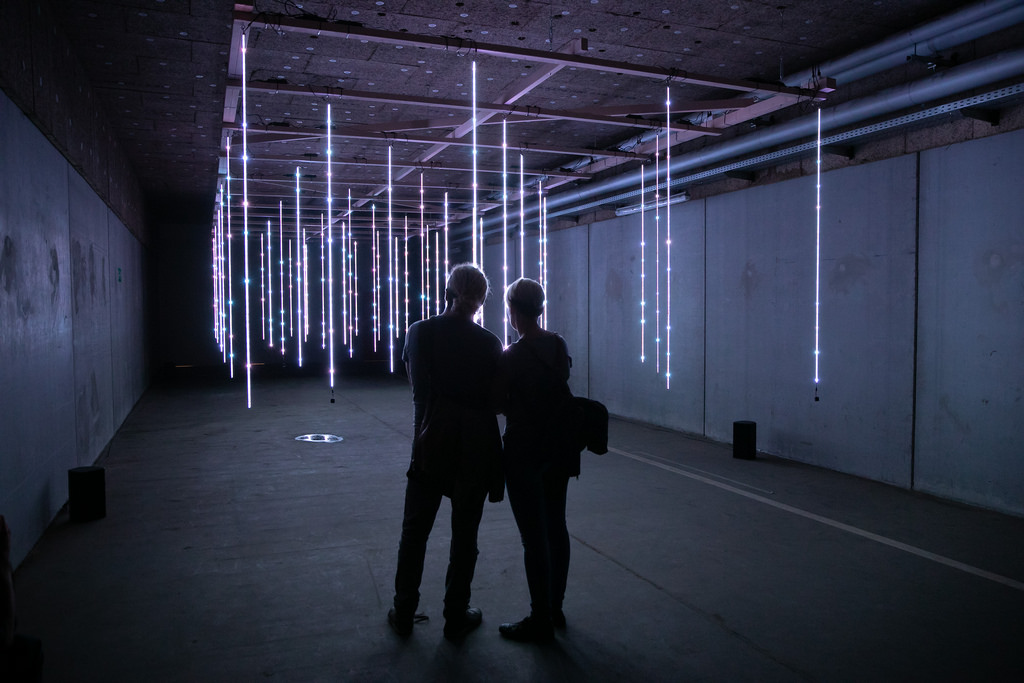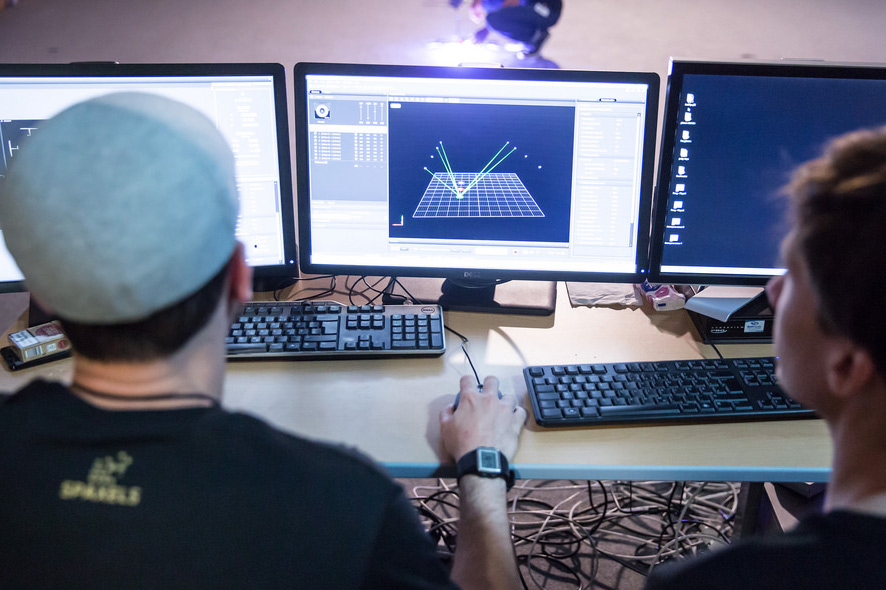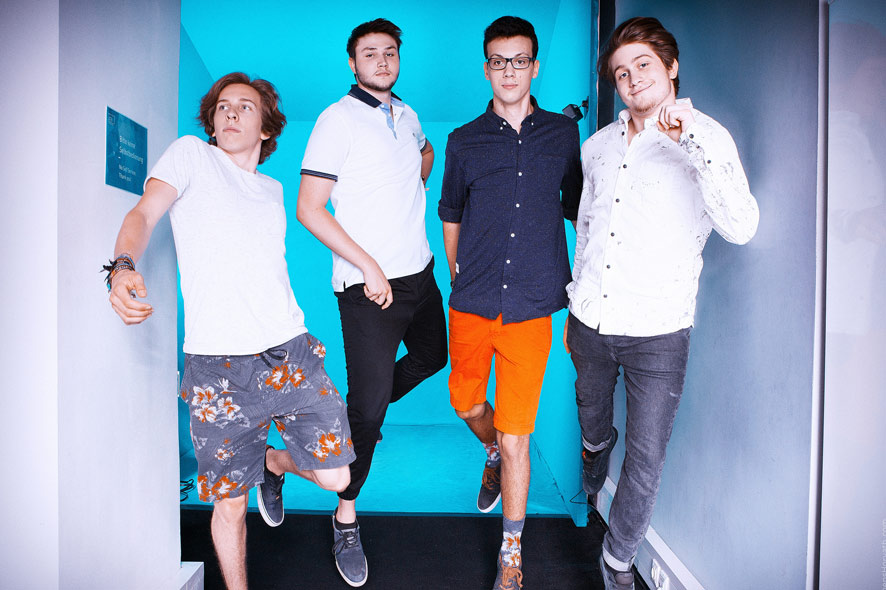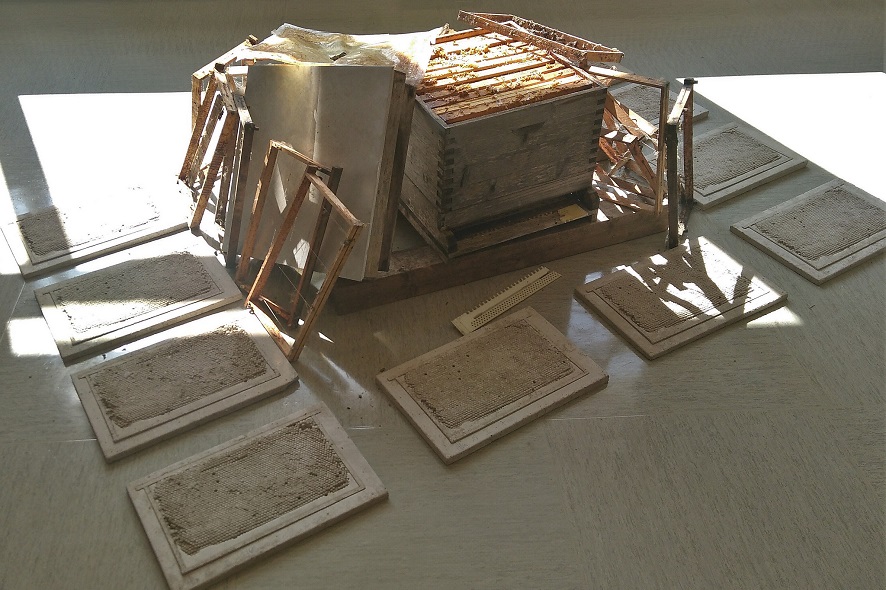The Ars Electronica Festival premiered on September 18, 1979. This pilot project was designed to take the Digital Revolution’s emergence as an occasion to scrutinize potential futures and to focus these inquiries on the nexus of art, technology and society. With this philosophy, which remains Ars Electronica’s watchwords to this day, the Festival’s founders— cyberneticist/physicist Herbert W. Franke, electronic musician Hubert Bognermayr, music producer Ulli A. Rützel and Hannes Leopoldseder, then director of the ORF–Austrian Broadcasting Company’s Upper Austria regional studio—laid the foundation for Ars Electronica’s ongoing success.
From Trial Balloon to International Success Story
Within a few years, this Linz invention developed into one of the world’s most important media art festivals. From year to year, its lineup became more extensive and multifaceted. There were symposia, exhibitions, performances, concerts and interventions spanning a broad arc from speculative futuristic scenarios to analytical considerations, from provocative actionism to philosophical debate. Each year, the Festival has been dedicated to a new theme and the organizers are also constantly on the lookout for interesting new venues—indeed, the consistent effort to break out of the narrow confines of conventional conference rooms and artistic spaces, and to stage cultural and scientific encounters in the public sphere has become something of an Ars Electronica trademark. Linz Harbor, a network of subterranean tunnels, a monastery, a tobacco processing plant and a former Austrian Postal Service logistics facility have been among the settings of this festival that defines itself as work in and with the public.Extraordinary Spirit
In 1979, the festival lineup was a short list: 20 artists and scientists hosted the program. Now, almost four decades later, the dramatis personae include over 1,000 artists and scientists from more than 40 countries, as well as approximately 450 accredited journalists and bloggers. And the renowned artists, speakers and media outlet representatives from throughout the world are by no means the whole story of what makes this event so great. Key contributors to the festival’s incomparable spirit are the thousands of annual visitors—a colorful mix of old friends and new faces.Artistic Directors
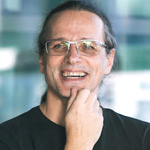 Gerfried Stocker (AT) is a media artist and an electronic engineer. Since 1995 he has been a managing and an artistic director of Ars Electronica. 1995/1996 he developed the groundbreaking exhibition strategies of Ars Electronica Center with a small team of artists and technicians and was responsible for the set-up and establishment of Ars Electronica’s own R&D facility, Ars Electronica Futurelab. Since 2004 he has been in charge of developing Ars Electronica’s program of international exhibition tours. From 2005 on he planned the expansion of Ars Electronica Center and implemented the total substantive makeover of its exhibits. Stocker is a guest speaker at many international conferences and a Visiting Professor at Osaka University of Arts as well as guest lecturer at Deusto University Bilbao. He is also a consultant for many international companies on creativity and innovation management.
Gerfried Stocker (AT) is a media artist and an electronic engineer. Since 1995 he has been a managing and an artistic director of Ars Electronica. 1995/1996 he developed the groundbreaking exhibition strategies of Ars Electronica Center with a small team of artists and technicians and was responsible for the set-up and establishment of Ars Electronica’s own R&D facility, Ars Electronica Futurelab. Since 2004 he has been in charge of developing Ars Electronica’s program of international exhibition tours. From 2005 on he planned the expansion of Ars Electronica Center and implemented the total substantive makeover of its exhibits. Stocker is a guest speaker at many international conferences and a Visiting Professor at Osaka University of Arts as well as guest lecturer at Deusto University Bilbao. He is also a consultant for many international companies on creativity and innovation management.
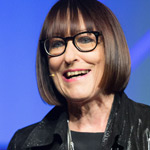 Since 1979, Christine Schöpf (AT) has been a driving force behind Ars Electronica’s development. Between 1987 and 2003, she played a key role in conceiving and organizing the Prix Ars Electronica. Since 1996, she and Gerfried Stocker have shared responsibility for the artistic direction of the Ars Electronica Festival. Christine Schöpf studied German & Romance languages and literature and then worked as a radio and TV journalist. From 1981 to 2008, she was in charge of cultural and scientific reporting at the ORF – Austrian Broadcasting Company’s Upper Austria Regional Studio. In 2009, Linz Art University bestowed the title of honorary professor on Christine Schöpf.
Since 1979, Christine Schöpf (AT) has been a driving force behind Ars Electronica’s development. Between 1987 and 2003, she played a key role in conceiving and organizing the Prix Ars Electronica. Since 1996, she and Gerfried Stocker have shared responsibility for the artistic direction of the Ars Electronica Festival. Christine Schöpf studied German & Romance languages and literature and then worked as a radio and TV journalist. From 1981 to 2008, she was in charge of cultural and scientific reporting at the ORF – Austrian Broadcasting Company’s Upper Austria Regional Studio. In 2009, Linz Art University bestowed the title of honorary professor on Christine Schöpf.
